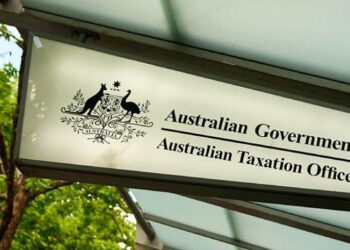Peter Burgess, CEO of the SMSF Association, said if the figure is still the same, it suggests the government will be going ahead with its plan to tax unrealised gains.
“In the scheme of things $2 billion is not a lot of money but the point of the proposal was to make the superannuation system more equitable, which in its current form it will not,” he said.
His comments reflect those of a former senior Treasury official who said the government’s proposed super tax won’t raise the large revenue it has projected because those with high balances are already planning on where to redistribute their assets to avoid the additional tax burden.
Terence O’Brien said in The Australian that the “measures are poorly justified by reference to a small number of large super balances, cited without information about how long ago those balances were initiated with large deposits, how much of those balances today are the returns to compound growth over decades, and whether any such large balances could be created today”.
Mr O’Brien said after years of encouraging people to invest in their superannuation, this policy reversal will “destroy confidence in superannuation saving, and should be avoided by grandfathering”.
“Being unindexed, the $3m trigger damages confidence even among savers not presently near or over the trigger,” he wrote.
“If the measures proceed, the trigger should be indexed, at the least like the Transfer Balance Cap is indexed. There is now a shambles of different indexation rates for some key savings and retirement income parameters, coupled with failures to index others.
“It is misleading to claim that ‘By 2025–26, the changes are expected to apply to less than 80,000 people, meaning that more than 99.5 per cent of individuals with a superannuation account will be unaffected’.”
He is quoted in the newspaper as saying ministers have already acknowledged that significantly higher percentages will be targeted over decades to come as a result of the compound growth of savings balances.
“It is laughable to claim that not indexing key parameters ‘provides certainty for people when arranging their tax and financial affairs’.
“For those who have reached a condition for release of super funds, the measures as outlined in the consultation paper would likely trigger an exodus of savings near or over the $3m cap before 1 July 2025, and thus raise little revenue.”
“This is because accruals taxing of capital gains within super without discount yields effective tax rates above what many would face if capital gains were made outside of super and taxed with 50 per cent ‘discount’ only on realisation, under general tax principles.
“Savers also have the option of moving income caught under the proposed measures into their tax-free principal residence, which is unlikely to yield national economic benefit compared to allocation of super savings through competitive capital markets to finance productive investments.
“Imposing accruals taxation without discount for capital gains in superannuation – the longest-term, most patient saving in the Australian economy – seems driven wholly by the administrative convenience of superannuation funds rather than any consideration of sound tax principles.
“The government should take its proposals back to the drawing board. With the measures yet to be put to parliament and not scheduled to take effect until July 1, 2025, there is plenty of time to achieve better outcomes.”
Mr Burgess said the SMSFA agrees with many of the comments Mr O’Brien made.
“It is the same thing many of us have been saying. The lack of indexation we agree with. It will capture a lot more people than they predict, and it is going to tax unrealised gains,” he said.
“This proposal creates uncertainty and will penalise those that made large contributions that they were able to make before.
“The system of model has been designed to appease the larger funds even though most of those who will be affected are SMSF members.
“It would be naïve to think that those individuals who can take money out of super before will be looking to see where they can invest their money in another tax concession environment that is not as heavily taxed as super.”
David Busoli, principal & SMSF specialist mentor with the SMSF Alliance, said Mr O’Brien’s comments reflect those of many others in the industry.
“This whole thing comes down to parameters as to what Treasury has been given,” he said. “I sent a letter to every member of parliament and those that did answer replied that they do what treasury wants and treasury will only do what it has already been told – it is a circular argument,” he said.


